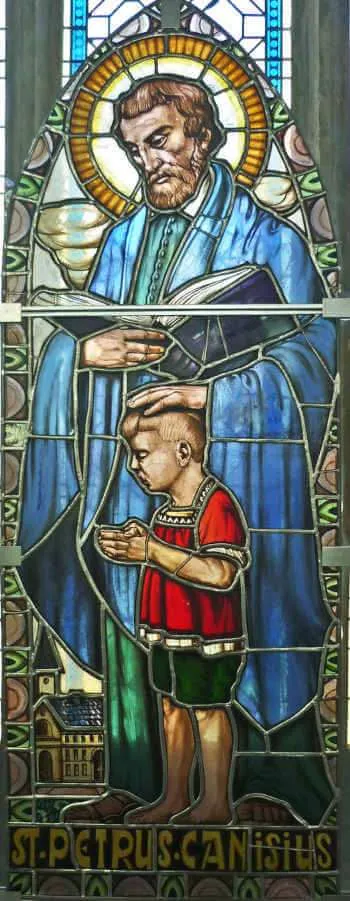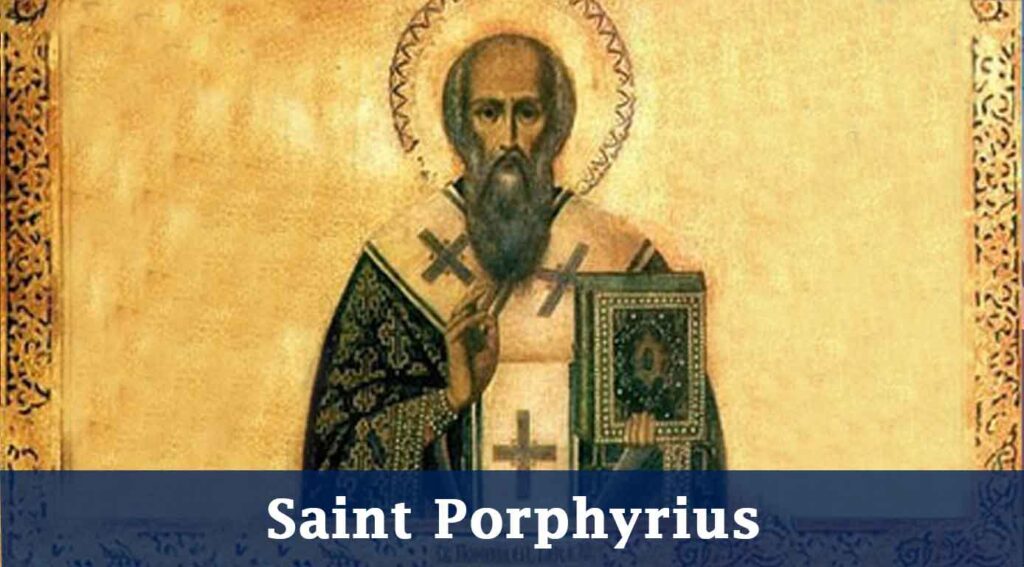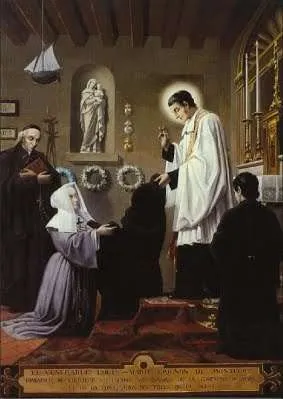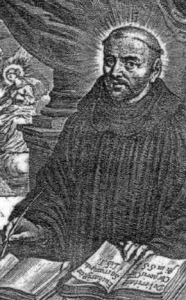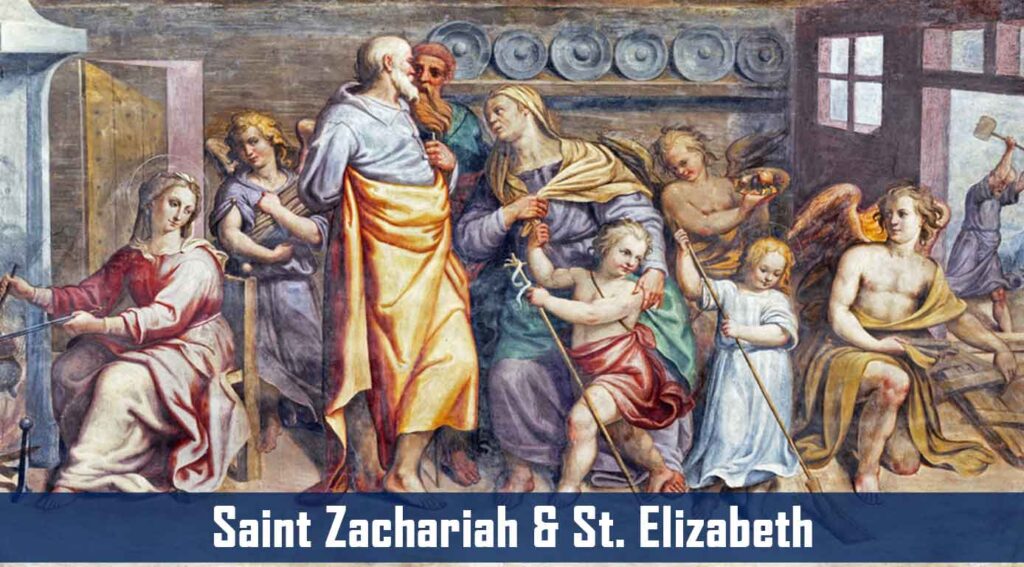Patron Saint of the Catholic press, Germany, and writers of catechisms Canonized and declared a Doctor of the Church by Pope Pius XI on May 21, 1925
In 1540, at the age of nineteen, Peter received his Master’s Degree of Arts. His father wanted him to marry a wealthy noblewoman, but Peter’s deepening faith led him to make a personal commitment to a life of celibacy. That same year, the future Saints Ignatius of Loyola, Francis Xavier, Peter Faber, and four others co-founded what would become the Society of Jesus, or Jesuits.
Over the next two decades, the Jesuits grew to an estimated 1,000 members, founded about thirty-five schools, and became missionaries to non-Christian territories. The Jesuits also played a significant role in the Catholic Counter-Reformation, becoming staunch defenders of the Catholic Church.
In 1543, Peter made a thirty-day retreat with the new Jesuit Father Peter Faber using the Spiritual Exercises written by Father Ignatius of Loyola. The primary goals of the Spiritual Exercises are personal conversion and the discernment of God’s will. They are especially designed to help a person arrive at a major life decision and resolution. Upon the completion of his thirty-day retreat, Peter Kanis discerned a call to enter the Jesuits. It was around that time that Peter began using the Latinized form of his name, Peter Canisius.
In 1545, the Holy Father opened the Council of Trent that helped lay the theological groundwork for the Catholic-Counter Reformation. The council clarified Catholic doctrines that were under attack due to the Protestant Reformation and enacted various reforms that were sorely needed within the Church. The Council of Trent continued to hold sessions until 1563.
In 1546, Peter Canisius was ordained a priest and was asked to attend the Council of Trent as an assistant to Cardinal Otto Truchsess von Waldburg, Bishop of Augsburg. In 1548, Peter went to Rome with Father Ignatius for further studies, and the following year was sent to Sicily where he assisted at the College of Messina, preaching and carrying out humble domestic duties. In 1549, he received his doctoral degree and made his final profession as a Jesuit.
Fully professed, well trained in Catholic doctrine, and intimately united to Christ through a life of personal prayer and devotion, Father Peter Canisius was ready for his life’s mission. At that time, Pope Paul III asked Father Ignatius of Loyola to recommend a Jesuit priest whom he could send to Germany to help renew the Catholic faith that was in turmoil. Father Peter Canisius was chosen.
After meeting with the pope, Father Peter went to Saint Peter’s Basilica to pray to Saints Peter and Paul, asking them to make the apostolic blessing he received from the Holy Father permanent, so he could fulfill the daunting task ahead of him. He later wrote in his journal that he sensed great consolation at that moment. He had a conviction that he was being sent as an apostle to Germany, and that the Apostles Peter and Paul would accompany him.
In 1549, Father Peter set out for the Duchy of Bavaria, modern-day southern Germany, where he first served as dean, rector, and vice chancellor of the University of Ingolstadt. He quickly sought to personalize the faith and to win over hearts and minds. His concern for the students and faculty reached far beyond academics and good doctrine. He was also concerned with forming them spiritually, helping them come to know Christ through prayer and the Sacraments.
In 1554, he was asked to become the Bishop of Vienna, but he declined, preferring to continue his Jesuit mission of teaching and preaching. Instead, he served as the interim diocesan administrator for a year where he continued to share his intimate love for Christ and the people by engaging in pastoral work, such as serving in hospitals and prisons.
It was there that he also took up the pen and began to write his influential German catechism: Summa Doctrinae Christianae (Summary of Christian Doctrine). This three-volume catechism was written for three different groups of people: theology students, older youth who were educated, and younger youth needing initial instruction. He wrote in a clear, concise, and down-to-earth way, using a question-and-answer format.
One of Father Peter’s deep convictions was that those who had left the faith often did so out of ignorance, not out of ill-will. He believed that if their questions were answered with kindness and clarity, the true faith would once again be accepted. Pope Benedict XVI, a German born in 1927, said of these catechisms, “So it was that still in my father’s generation people in Germany were calling the Catechism simply ‘the Canisius.’ He really was the Catechist of Germany for centuries…”
After his time in Vienna, Father Peter worked nonstop. He founded the College of Prague in 1556, served as the first superior of the Jesuits in northern Germany, coordinated a network of Jesuit communities and colleges, was entrusted with diplomatic missions, and continued to contribute to the Council of Trent.
In 1580, he moved to Fribourg, Switzerland, where he spent the last seventeen years of his life preaching and writing. His writings were voluminous, flooding Germany with devotionals, theological commentaries, spiritual texts, apologetic works, educational guides, and translations of Latin texts into German. He was so influential that 300 years after his death, Pope Leo XIII proclaimed him the “Second Apostle of Germany” (after Saint Boniface).
As we honor this great apostle of the Catholic faith, ponder the reasons for his success. He loved Christ, and he loved God’s people. He didn’t teach with arrogance or pride. He wasn’t harsh or heavy-handed. Instead, he won hearts as he won minds, gently but clearly leading people back to the faith, introducing them to the Person of Christ, and showing them the way to Heaven. Seek Saint Peter Canisius’ intercession today, praying that you, too, will become an evangelist in his mold. Commit yourself to sharing the Gospel with compassion, while never wavering from the truth.
Source: https://mycatholic.life/saints/saints-of-the-liturgical-year/21-december-saint-peter-canisius-priest-and-doctor–optional-memorial

